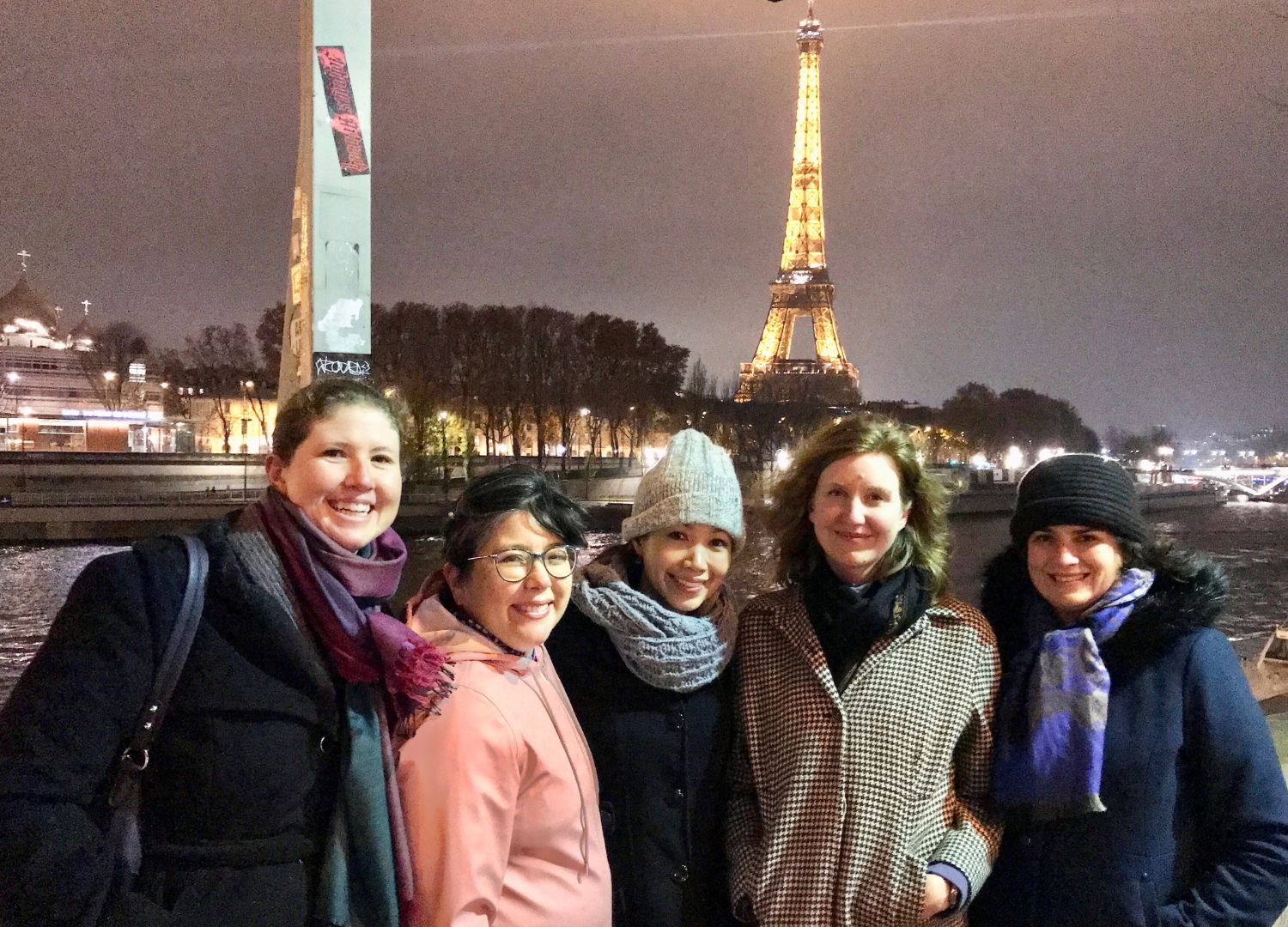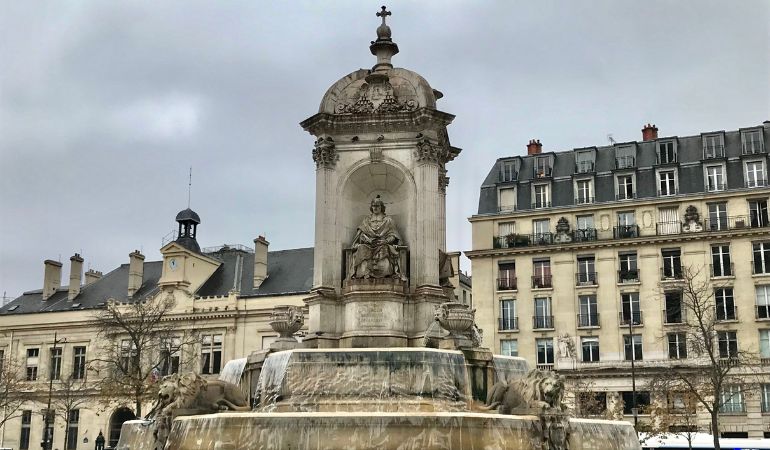If you had told me a year ago that I’d be standing underneath the Eiffel Tower in the most romantic city in the world as a reward for giving my very first talk to an international audience, I would have thought you were joking. But in December 2022, there I was, presenting my PhD research topic on sustainable human-machine collaboration in mobile banking apps at the ‘Human-Machine Collaboration in a changing world’ (HMC22) workshop at Université Paris Dauphine-PSL. While the experience was both exhilarating and nerve-wracking, it was also an incredible opportunity to connect with leading researchers and experts in the field. And to top it all off, I got to explore the magical city of Paris for the first time, creating memories I will never forget.
I still remember waiting in the swimming pool during my kids’ water polo training when I saw the call for abstracts for the HMC22 workshop. I suddenly felt a surge of nervous excitement as I had never done anything like this before. Writing an abstract in English and presenting it to an international audience took a lot of work for me as a non-native speaker with limited writing and research experience. However, I decided to take on the challenge and combine my background in banking with my interest in sustainability to create an abstract. When I received the email that my abstract was accepted, I was so ecstatic. And when I discovered that I could attend and present my abstract in-person in Paris, I was over the moon. Although I was nervous about speaking in front of a diverse audience, I practised and received support from my supervisors, cohort, and family. On the day of the presentation, I was so engaged in the workshop that I almost forgot about my talk. When I finally presented, it went smoothly, and I even made some connections for future collaborations.
The HMC22 workshop was truly a life-changing experience for me, filled with enriching and enlightening moments that have left a lasting impression. Surrounded by brilliant minds from all over the world, I felt an overwhelming sense of gratitude and excitement for the opportunity to engage with experts in human-machine collaboration across a variety of disciplines, including sociology, computer science, design, governance, cybernetics, law, art, robotics, health, and defence. The diverse perspectives and experiences shared by each speaker inspired me to think more critically about the implications of emerging technologies and consider the best ways to ensure their safe and sustainable use. As a first-year PhD student, presenting my work and engaging with a multidisciplinary audience has been invaluable for expanding my network, honing my communication, and networking skills, and giving me a renewed sense of purpose and excitement for my work.

Reflecting on my cybernetics journey so far, I am grateful for the opportunities that have brought me to this point. Pursuing my study and future career in the cybernetics world was a dream I never knew I had. After completing the Master of Applied Cybernetics program last year at ANU School of Cybernetics, I knew that pursuing a PhD in this field was my next step. My research focus is still evolving, but it builds on my career in banking, where I want to explore the connections between technology, society, and the environment in the banking industry, using cybernetic principles. Having worked in the industry, I have seen first-hand how small changes can significantly impact customers’ financial well-being and the environment. I believe that taking a holistic approach to cybernetics in my research will contribute to create a brighter future by promoting safe, responsible, and sustainable technology in banking.
Last year was an incredible journey of learning and discovery for me, full of magical moments that I will never forget. I am lucky to have the support of my family and close friends, who always have my back and love me unconditionally. As a lifelong learner, I cherish every opportunity that comes my way, and the HMC22 workshop in Paris was a dream come true. I have always wanted to visit the city of love, and presenting my research at the workshop was the perfect opportunity to fulfil this dream. I had the chance to engage with fellow speakers, discuss new ideas, and even see the Eiffel Tower in-person! The experience was unforgettable, and I am excited to see where my marathon part-time PhD journey will take me next.
The presentation is available online, published by Algorithmic Futures Policy Lab.
Myrna is a PhD candidate at the ANU School of Cybernetics as part of Commonwealth Bank’s PhD sponsorship in AI program.
HMC22 was a collaboration between ANU Centre for European Studies, ANU School of Cybernetics, ANU Fenner School of Environment and Society, University of Canberra, DIMACS at Rutgers University, CNRS LAMSADE, and EnsadLab, laboratory of the École nationale supérieure des Arts Décoratifs – PSL University. It was organised by Katherine Daniell (ANU), Joseph Guillaume (ANU), Damith Herath (University of Canberra), Fred Roberts (DIMACS), Alexis Tsoukiás (LAMSADE), Elizabeth Williams (ANU), Xuanying Zhu (ANU), Kathy Reid (ANU), Lorenn Ruster (ANU), Myrna Kennedy (ANU), Samuel Bianchini (EnsadLab), Sarra Tajouri (CNRS LAMSADE and Université Paris Dauphine-PSL) and Nicolas Fayard (CNRS LAMSADE and Université Paris Dauphine-PSL).
The Algorithmic Futures Policy Lab is made possible with the support of the Erasmus+ Programme of the European Union. The content in this post and any material herein reflects only the author’s view. The Education, Audiovisual and Culture Executive Agency and the European Commission are not responsible for any use that may be made of the information it contains.


